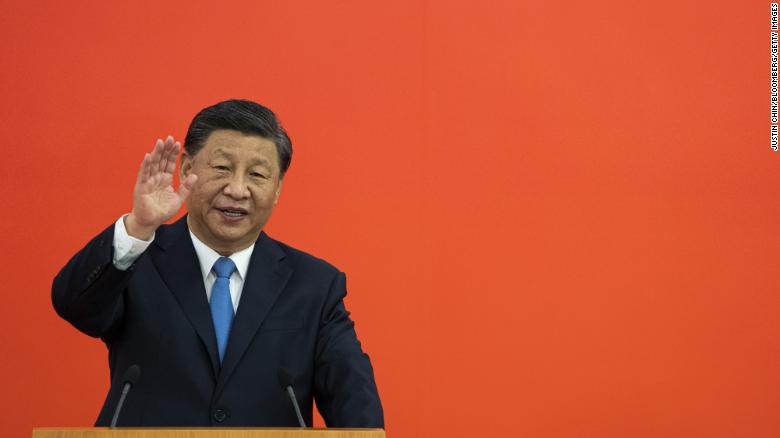In a new report published in September 2022 titled, “Beijing’s Global Media Influence 2022: Authoritarian Expansion and the Power of Democratic Resilience”, Freedom House, a nonprofit organization revealed that China is intensifying its campaign to influence and manipulate news and information worldwide, and simultaneously using an array of tools to project a positive image of itself abroad.
The Freedom House which conducted their study during the period January 2019 to December 2021, concluded that the Chinese government, under the leadership of President Xi Jinping, is accelerating a massive campaign to influence media outlets and news consumers around the world. While some aspects of this effort use the tools of traditional public diplomacy, many others are covert, coercive, and potentially corrupt. The report found that Chinese government has scaled up its global media footprint in 29 countries and Taiwan during that period.
The report examined 30 democracies around the world and found that in 18 of them, the Chinese Communist Party increased attempts to influence media from 2019 to 2021. In 16 countries, their efforts have been ranked in the report as “high” or ‘”very high,” meaning China attempted to establish multiple methods of exerting pressure.
To shape media content and narratives around the world, since the early 2000s, Chinese Communist Party (CCP) officials have invested billions of dollars in a far more ambitious campaign and in multiple languages.
China’s influence tactics included intimidating journalists and media outlets, blocking websites, harassing foreign correspondents, deploying cyberattacks, and online troll abuse, social media manipulation by hired influencers and targeted disinformation campaigns, among other methods.
China’s media influence efforts also includes, propaganda and promotion of favored narratives, paid advertorial content in local media, co-produced content, content-sharing agreements, Beijing-friendly content produced by local media, subsidized journalist trips, and training for social media influencers as key avenues of content dissemination. Another category of media influence efforts is “disinformation campaigns in which China purposefully spreads false or misleading information through “inauthentic activity” such as fake social media accounts, focused on issues including the Hong Kong protests, Taiwan-U.S. relations, and Taiwan’s domestic politics.
Due to an apparent decline in the global reputation of China and its president, the CCP has accelerated its foreign media influence campaigns alongside, particularly among people who live in parliamentary democracies.
According to the report, this mission has gained urgency and significance since 2019, as global audiences have displayed sympathy toward pro-democracy protesters in Hong Kong, and Uyghurs detained in Xinjiang, while blaming Chinese officials for suppressing information about the initial outbreak of COVID-19. As part of the campaign, Chinese diplomats and state media outlets have “openly promoted falsehood or misleading content.”
The most disturbing result of the CCP’s global media influence campaign could be perceived by a concerted effort to whitewash and deny the human rights atrocities and violations of international law being committed against members of ethnic and religious minority groups in Xinjiang.
The report acknowledged that “a growing number of countries have demonstrated considerable resistance in recent years, but Beijing’s tactics are simultaneously becoming more sophisticated, more aggressive, and harder to detect.”
According to Freedom House’s report, Muslim-majority Indonesia and Malaysia were among at least 16 countries found to be susceptible to Beijing’s influence drives, while the Philippines was listed as “resilient.” Indonesian and Malaysian journalists, influencers, Islamic leaders, politicians and students participated in Beijing-subsidized trips to Xinjiang who presented a state-controlled perspective of the region. Some of those repeatedly presented and highlighted Beijing’s talking points including denials of human rights abuses in XUAR.
Beijing’s strongest efforts in its global campaign are targeted toward Taiwan, the United Kingdom and the United States, which were found to be among the most resilient. Those three along with Australia have faced “more aggressive, confrontational, or surreptitious tactics,” the report said, predicting that the trend likely would expand to other countries.
The report observed that governments’ ability to counter CCP’s aggressive media influence efforts remains “alarmingly uneven.” It warned that inadequate responses could leave countries vulnerable. Freedom House called for “a coordinated response,” including building up independent in-country expertise on China, supporting investigative journalism and shoring up underlying protections for press freedom.
This trend is likely to expand to additional countries in the coming years. More countries and their researchers, journalists, and policymakers—should expect to encounter a rise in diplomatic intimidation, cyber-bullying, manipulation by hired influencers on social media, and targeted disinformation campaigns designed to sow confusion about the CCP and their own societies.

